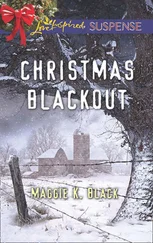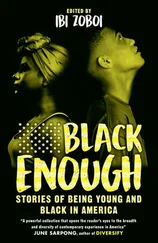She was coming for him. He could see her dark shape, walking deliberately. But no shots.
Did she have to reload?
He didn’t wait to find out. He was dead anyway. He scrambled into the car. Turned the key and nothing happened, turned it again too quickly. The start made the hideous metal-on-metal sound. He tried one more time, and this time it caught. Another slingshot sound and a loud bang against metal, but he got the car going and hit the accelerator. It lurched forward toward the fence. Put it in reverse! He did, and floored it.
She was almost to him. He entertained a thought of running her down, killing the monster once and for all, but he was going too fast. The LeBaron slewed out onto the road in a cloud of smoke and burning rubber. He was already facing one way, so he hit the gas and drove, heading up into the mountains toward Jerome.
Chapter Thirty-Four
THE GLOOM AND the falling rain almost rendered Tess invisible. Cars sped by on I-17, catching her in their headlights, but they were going too fast. She held up her badge, but the drivers were by her in a flash and it was doubtful they’d register what the badge meant anyway.
And so she trudged north, holding up her badge. The Verde Valley was a long way from here.
It was probably thirty, forty miles away.
Finally a DPS vehicle flashed by, slowed, and pulled over way up ahead. The reverse lights came on and the car backed down the verge toward her.
“Bajada Sheriff’s,” she said to the highway patrol officer. “Tess McCrae.”
“What happened to you?” the officer asked, once she was in the car and they’d pulled back out on the road.
“Long story.” She told him about the wreck, being run off the road by a white Chevy truck. She gave him the license number.
He nodded. “I just came from there now. Your car is part of a crime scene.”
One of the many crime scenes, she thought.
They turned off at Cottonwood and drove to the DPS office on Encanto. Once in the office, the DPS officer introduced her to their detective in this sector, an older man named Glazer. Tess went through it with him, gritting her teeth in some parts. Shamed that a movie star like Max had gotten the jump on her.
Embarrassing. She wasn’t going to lie, though.
“He produced a firearm?”
“No, he just showed it to me. It was in the waistband of his jeans.”
“It was an implied threat, though.”
“Yes.” She felt it was important to add, “He was scared of someone. He was trying to get away.”
“And you’re sure it was the actor, Max Conroy?”
“Yes.”
The interview was painstaking, emphasis on pain. She felt like a first-day rookie. Tess gave him just the facts, though, although they were damning enough.
She recalled her conversation with Max. He could have been snowing her. She admitted that. But she didn’t think so. And there was proof. He was right about the white truck, and the woman and the boy.
Glazer wanted to hear all about Max Conroy. Tess told him what she knew, not what was conjecture, that the woman and boy were after him for some reason. “They tried to kill us.”
“And you have no idea why.”
“No.”
“And you say the boy is dead.”
“Yes, but she took him with her.”
“Took him with her. You mean, put him in the vehicle and drove away?”
“That’s what I’m saying.” She felt defensive. The man looked at her with skeptical eyes. He didn’t think much of a cop who let someone get the jump on her.
His lips tightened into a line. Tess knew what it was like to sit on the other side of the table, knee to knee with a suspect. All the mental games you played to get the upper hand. There was a whole toolbox of them, and she knew all of them. She’d been considered the best interrogator in her department in Albuquerque. And now here she was, feeling that they were halfway humoring her and halfway pegging her as Bonnie to Max Conroy’s Clyde. How’d she lose her phone? Why didn’t the car have a radio? How did she team up with Conroy?
When she’d finished, Glazer nodded. He stared at her, skeptical.
She stared back at him. Stay calm. It helped to know that she’d been in his shoes hundreds of times. She knew the drill. “Are we done here?”
He grunted, stood up, gathered the papers together. “Wait here,” he said.
Forty minutes later, he returned.
“I talked to Sheriff Bonneville. He asserts that everything you said was true.” His distaste was clear. “Bonny’s always been eccentric, but it’s his agency and I guess he runs his ship his own way.”
Underneath, he was saying, It sure isn’t a tight ship .
He added, “We want you to go to the hospital for observation.”
“I don’t plan to do that.”
He shrugged. “Your call. But you’re beat up. You could do yourself some damage.”
“Is one of my people coming?”
“He’s on the way. You can wait in here.”
“Thanks.”
“Soda?”
“No, thanks.”
He ducked out. She had a feeling he was watching her through the one-way mirror.
Let him. All she had to do was wait.
Chapter Thirty-Five
TWO MILES LATER, the truck loomed in Max’s rearview mirror. It roared up behind him and almost connected. He hit the gas and spurted away.
No match, though—and he knew it.
They were quickly coming up on the first hairpin turn. He could not go too fast. And yet the freight train on his tail was moving up, closer and closer. Ready to project him into space.
Doubtful this thing had airbags.
The rain had lessened to a drizzle, but it was almost completely dark.
He kept hitting the gas, gaining a few feet. The truck behind him seemed to have steering problems—he saw it overcorrect a couple of times as they made the hairpin.
Max thought through his options. He tried to remember this road—but he’d only been on it twice. Knew the streets were narrow and one section was one-way. If he could slow it down without getting pushed by the truck, he could jump out and run for one of the houses. But the truck hugged his bumper, and he couldn’t stop.
Max could almost feel the hatred coming at him. He glanced in the rearview mirror. Although it was dark he could see her sitting like a mannequin, high up in the truck. And a smaller figure, strapped into the passenger’s side. The kid ? Could it be the kid? Was he dead, or just wounded? He only saw the silhouettes. He heard the truck throttle up, the loud, big engine—and felt the thud as she hit him. Tires screeched—his. He felt the back end slide a little, then catch, and he hit the gas. The truck came up and bumped him again, a glancing blow. He kept his hands steady on the wheel— don’t overcorrect . He’d had training, a lot of training, but most of it flew out the window now. He spurted ahead again, looking through the mist and the rain for an offshoot road, or an empty parking lot, but all the lots were full. The cars must belong to tourists, kept on the mountain by the thunderstorm. He could go left, onto a side street, but by the time he thought it, the street was gone.
“You remember when you were in Brickyard Dreams ?”
Max turned his head in the direction of the LeBaron’s passenger seat. Shower Cap was belted in beside him.
Jesus! The woman behind him had the dead boy belted in the car, and he had a goddamn hallucination sitting in his front seat. “What?”
“Rinaldo—remember? You remember Rinaldo Anisetti? He liked Grey Goose vodka and plump women. He and his crew worked with you for a week.”
“Yeah, yeah, I know.” And suddenly he did know. Anisetti had taught him how to drive an Indy car. They’d worked on turns. Max had learned to hit the brakes hard before the turn, ease off when he hit the curve, and accelerate out of the turn. Something about the wheels. The more the car’s wheels turned, the less you used the steering wheel. The words came back to him: apex, turn-in point, exit . It was his instinct, anyway—he knew about centrifugal force—it came naturally to him. With turns like these, you tried to bend the turn rather than kink it—make as flat an arc from point A to point B to point C as possible.
Читать дальше








